Method
"Difficile per regulam, simplex per exemplum"
"Difficult by rule, simple by example"
- Seneca
Create Your Own Music.
The goal of my teaching is to provide you with the tools to make your imagination sound-out-loud; to speak the language of music with fluency.
This means singing, acquiring instrumental skill, learning to listen, think, improvise, read and write with deliberate musical awareness. Yet, my method is to integrate all these things into one thing; ‘speaking’ music.
I teach Music as a “first language”; this means it’s the whole subject at once, not just playing from a page. Just like learning to speak, you begin with a vocabulary you can understand, and through listening, remembering, responding – your vocabulary grows and you can speak your mind.
The Language of Music - Learning to Speak.
The core of my method is the singing voice, and the main tool is the keyboard. You don’t need to become “A Singer” to use your voice musically.
The vocal element of the teaching is based on modern methods of solfege (developed by Zoltan Kodaly), as well as older techniques from centuries ago, suited to improvisation (‘cantare super librum‘; ‘singing off the book’). Creativity at the keyboard is facilitated by ‘thoroughbass’ and ‘partimento’; both are creative approaches not limited to any musical type or style, but which expand your hearing in a practical way.
The Ears are the most important instrument. Understand what you hear, and just like language, you then understand what you see on a page. Creativity is the key to a full grasp of the subject.
A Holistic Approach
In my studio, there is no separation of ‘theory’ and ‘practice’. All learning is by doing; all understanding through creativity. The core of the pedagogy is training the ears, fingers and imagination. The journey begins (and continues) with the melodic line; learning to hear/sing/play melody against melody.
Using both the voice and keyboard, we imitate, change things, improvise – creating music from the first lesson. It is important to always keep lessons relevant to your interests and personal goals.
We begin with any favourite or familiar music, as raw material – to first recognize the essential patterns, and use them to weave your own; practicing a vocabulary of counterpoint to lead you onward.
This is a great help to inspire you to create something you like, and this way, you absorb what you learn. The ‘theory of music’ is always implied in a practical way.
My syllabus covers more than the standard requirements for the ABRSM/RCM exam board*; however, I am more than happy to accommodate any students who are taking exams and offer tuition focused on those outcomes, and beyond.
*There are currently very few examinations in the UK for improvisation or counterpoint, both of which are essential ingredients of the teaching at Calliope Music Studio.
